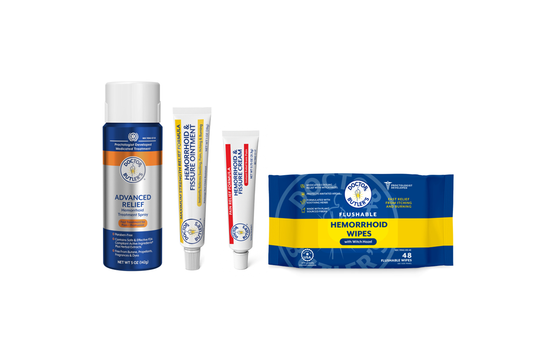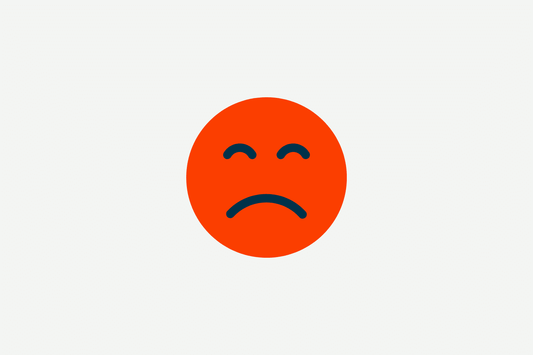
Articles
Articles

Can Hemorrhoids Bleed? When It Is Normal and Wh...
Bleeding hemorrhoids can be confusing. This guide explains what typical bleeding looks like, what each symptom may signal, and when it is time to see a doctor.
Can Hemorrhoids Bleed? When It Is Normal and Wh...
Bleeding hemorrhoids can be confusing. This guide explains what typical bleeding looks like, what each symptom may signal, and when it is time to see a doctor.

How to Heal a Fissure Fast | Doctor Butler's
Learn how to heal a fissure fast with natural treatments, when to seek medical help, and simple prevention tips to avoid future discomfort.
How to Heal a Fissure Fast | Doctor Butler's
Learn how to heal a fissure fast with natural treatments, when to seek medical help, and simple prevention tips to avoid future discomfort.

Hemorrhoid Spray vs. Cream vs. Ointment vs. Wip...
Choosing the right treatment for hemorrhoid relief can feel overwhelming. Sprays, creams, ointments, wipes — each promises comfort, but which one fits your symptoms and lifestyle? As a proctologist-developed brand,...
Hemorrhoid Spray vs. Cream vs. Ointment vs. Wip...
Choosing the right treatment for hemorrhoid relief can feel overwhelming. Sprays, creams, ointments, wipes — each promises comfort, but which one fits your symptoms and lifestyle? As a proctologist-developed brand,...

What To Do If You Can't Poop Because Of Hemorrh...
Hemorrhoids are a problem shared among many – studies show that 50% to 85% of adults worldwide experience them. What can cause hemorrhoids?1 A number of factors, including constipation, pregnancy,...
What To Do If You Can't Poop Because Of Hemorrh...
Hemorrhoids are a problem shared among many – studies show that 50% to 85% of adults worldwide experience them. What can cause hemorrhoids?1 A number of factors, including constipation, pregnancy,...

What Triggers Hemorrhoids? 5 Foods to Avoid Wit...
Let’s face it—hemorrhoids are the unwelcome houseguests of the digestive system. They show up unannounced, make themselves at home, and refuse to leave without causing some serious discomfort. If you’ve...
What Triggers Hemorrhoids? 5 Foods to Avoid Wit...
Let’s face it—hemorrhoids are the unwelcome houseguests of the digestive system. They show up unannounced, make themselves at home, and refuse to leave without causing some serious discomfort. If you’ve...

Hemorrhoid or Pimple: Telling the Difference Be...
Time for a quick post! Check the charts below to determine if you have a hemorrhoid or a pimple. Understanding the Differences Between These Common Problems Hemorrhoids are swollen veins...
Hemorrhoid or Pimple: Telling the Difference Be...
Time for a quick post! Check the charts below to determine if you have a hemorrhoid or a pimple. Understanding the Differences Between These Common Problems Hemorrhoids are swollen veins...
Felt relief right away and it shrunk my hemorrhoids too. I was surprised it did both so well and I’m happy I tried it. Thank you!
The most effective OTC treatment I’ve found so far. Will definitely be buying more.
Other creams work ok. This cream works great. Many ointments have Lidocaine, as does Doctor Butler’s, but Dr. B’s formula worked better for me than the other ointments I’ve tried. I’m so happy to get relief like this.
